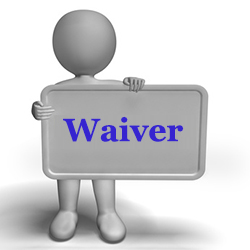
It is a popular belief that in certain circumstances, only a Notice of Fulfilment (NOF) will do, and a Waiver is completely unacceptable.
That’s true in part. The NOF is required for a True Condition Precedent, that is, one which involves a decision by an independent third party who is not part of the contract, like a mortgage assumption approval, or a municipal severance approval.
For simple Conditions Precedent, for example, involving financing or inspection, the clause itself provides two choices.
Let’s have a look at the standard OREA inspection clause:
“This Offer is conditional upon the inspection of the subject property by a home inspector at the Buyer’s own expense, and the obtaining of a report satisfactory to the Buyer in the Buyer’s sole and absolute discretion.
Unless the Buyer gives notice in writing delivered to the Seller personally or in accordance with any other provisions for the delivery of notice in this Agreement of Purchase and Sale or any Schedule thereto not later than _____ p.m. on the _____ day of __________, 20_____, that this condition is fulfilled, this Offer shall be null and void and the deposit shall be returned to the Buyer in full without deduction.
The Seller agrees to co-operate in providing access to the property for the purpose of this inspection.
This condition is included for the benefit of the Buyer and may be waived at the Buyer’s sole option by notice in writing to the Seller as aforesaid within the time period stated herein.”
In order to move forward with this deal and have the Agreement become “unconditional”, the Buyer needs to either:
- Provide a Notice of Fulfillment, or
- Provide a Waiver.
Both are unnecessary. The second one would be redundant and meaningless at law.
You will also see here that the choice between the two, rests with the Buyer.
Yet, for some strange reason, the Seller’s agent on occasion wants to become involved in the Buyer’s choice. They wish to reject the Waiver. They say that the NOF means that there was, in fact, an inspection, and that’s an admission that they want to record in the file. They prefer the NOF and reject the Waiver.
I suppose it never occurred to them that calling a home inspector as a witness at trial would be the required level of proof. Their personal interpretation of the Buyer’s meaning behind the selection of the Waiver or the NOF has no importance. They cannot offer testimony to this effect in Court. The decision on that point, if it were indeed relevant, would be that of the Trial Judge and not the Seller’s agent.
So, sometimes, a second document is requested. And sometimes, the Buyer’s agent complies.
But, what would happen if the Buyer’s agent just refused? The Waiver is the Waiver. That’s it. Nothing else! That’s still full and complete compliance with the terms of the clause.
For the Seller’s agent to make a fuss at this point, would be rather foolhardy. First, re-read the clause to see if you can come up with another interpretation. If you still think you need the NOF, then call the Seller’s lawyer for a second opinion before rejecting the Waiver.
Failure to accept the Waiver places the Seller in breach of contract, liable in damages to the Buyer, susceptible to an action for Specific Performance and an application for a Certificate of Pending Litigation to be filed against the title to the property.
So, tread “lightly”.
Brian Madigan LL.B., Broker
